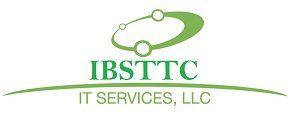A SaaS marketing agency plays a pivotal role in the journey of a startup, acting as a catalyst for growth and providing the specialized expertise needed to navigate the competitive software-as-a-service market. For a new company, which often has a great product but limited marketing resources, an agency can be the difference between stagnating and scaling.
Here’s a breakdown of the key roles a SaaS marketing agency plays in helping a startup scale:
1. Providing Instant, Specialized Expertise
Startups often lack the capital and time to build a full, in-house marketing team with a wide range of specialized skills. An agency offers a ready-made team of experts in key areas like:
- SEO (Search Engine Optimization): They can perform technical audits, keyword research, and link-building to ensure the startup’s website ranks for relevant search terms. This is crucial for attracting organic, high-intent traffic.
- PPC (Pay-Per-Click) and Paid Social: Agencies are adept at managing paid ad campaigns on platforms like Google Ads and LinkedIn. They can quickly launch targeted campaigns, optimize ad spend, and generate qualified leads.
- Content Marketing: They can develop a content strategy, create high-quality blog posts, case studies, and whitepapers that educate the target audience and establish the startup as a thought leader.
- CRO (Conversion Rate Optimization): Agencies can analyze website user behavior, conduct A/B testing, and make data-driven changes to improve conversion rates—turning website visitors into paying customers.
2. Crafting a Data-Driven Go-to-Market (GTM) Strategy
A common mistake for startups is launching a product without a clear marketing plan. An agency helps to fill this gap by:
- Conducting Market Research: They analyze the industry, competitors, and target audience to identify the startup’s unique selling proposition (USP) and how to best position the product in the market.
- Developing a Funnel: They build a tailored marketing funnel that focuses on attracting the right audience, nurturing them with relevant content, and converting them into customers. This also includes defining key metrics like Customer Acquisition Cost (CAC) and Customer Lifetime Value (LTV).
3. Accelerating Growth and Time-to-Market
For a startup, speed is everything. An agency can help a company achieve a “hockey-stick” growth curve by:
- Accelerated Campaign Launch: With established processes and a dedicated team, an agency can quickly launch and manage campaigns, allowing the startup to get its product in front of the right audience much faster than if they were to hire and train an internal team.
- Predictable Growth Models: Agencies can use their experience to create predictable revenue models and set clear, measurable goals, providing the startup with a roadmap for scaling.
4. Improving Customer Acquisition Cost (CAC) and Lifetime Value (LTV)
SaaS economics are all about the relationship between CAC and LTV. An agency’s role is to optimize both sides of this equation:
- Lowering CAC: Through data analysis, A/B testing, and campaign optimization, they can make paid advertising and other marketing channels more efficient, reducing the cost of acquiring each new customer.
- Increasing LTV: By focusing on the entire customer journey, from onboarding to retention, they can help create a smoother experience that reduces churn and encourages long-term customer relationships.
5. Offering Flexibility and Scalability
The needs of a startup change rapidly. An agency provides a flexible solution that can adapt to these changes:
- Scaling Up or Down: As the startup grows, the agency can scale services to match. This is much more efficient than hiring and firing employees as needs fluctuate.
- Focus on Core Business: By outsourcing marketing, the startup’s founders and core team can remain focused on what they do best: product development, sales, and customer service.
In short, a SaaS marketing agency acts as an outsourced growth engine for a startup. They provide the specialized knowledge, resources, and strategic guidance needed to move beyond the early stages and achieve sustainable, scalable growth without the high fixed costs and challenges of building an in-house team from scratch.




